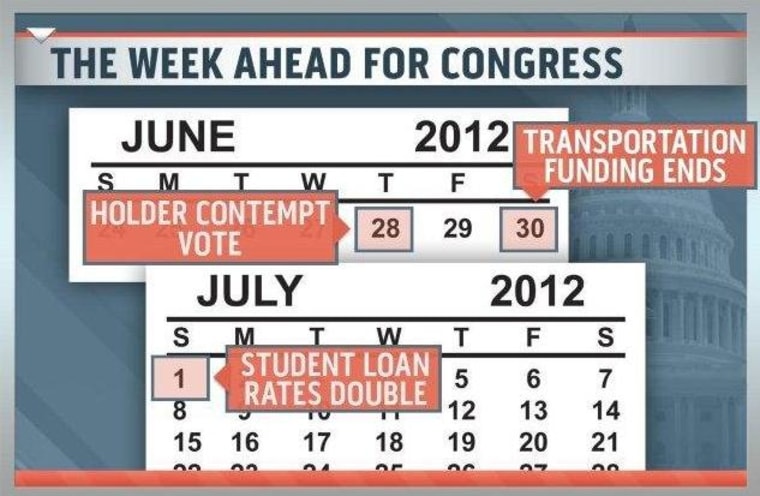The President can't always control his political fate. And this week is a perfect example of that fact.
On Thursday, President Obama will learn whether his health care law is constitutional, when the Supreme Court hands down its long-awaited decision.
Also on Thursday, the House G.O.P. is expected to vote to hold Attorney General Eric Holder in contempt of Congress for his role in the "Fast and Furious" investigation. The timing is curious, leading to speculation that, perhaps, Republicans want the vote to be overshadowed by the Supreme Court ruling.
On Saturday, transportation funding could come to an end, jeopardizing three million construction jobs, if Congress can't come to a deal on a transportation bill. Senate Majority Leader Harry Reid puts the chances of getting both sides to agree to a long-term bill at better than 50-50.
And on Sunday, student loan rates will double if Democrats and Republicans fail to reach an agreement to extend them. It's possible lawmakers will have to work through the weekend.
All of this is a good preview of the fiscal cliff of budget cuts and tax increases that awaits Congress at the end of the year. It's likely lawmakers may do what they do best, and wait until the very last-minute to tackle the problem, or they may try another tactic, and just push back the deadline. As the President knows, you can never predict Congress's next move.
